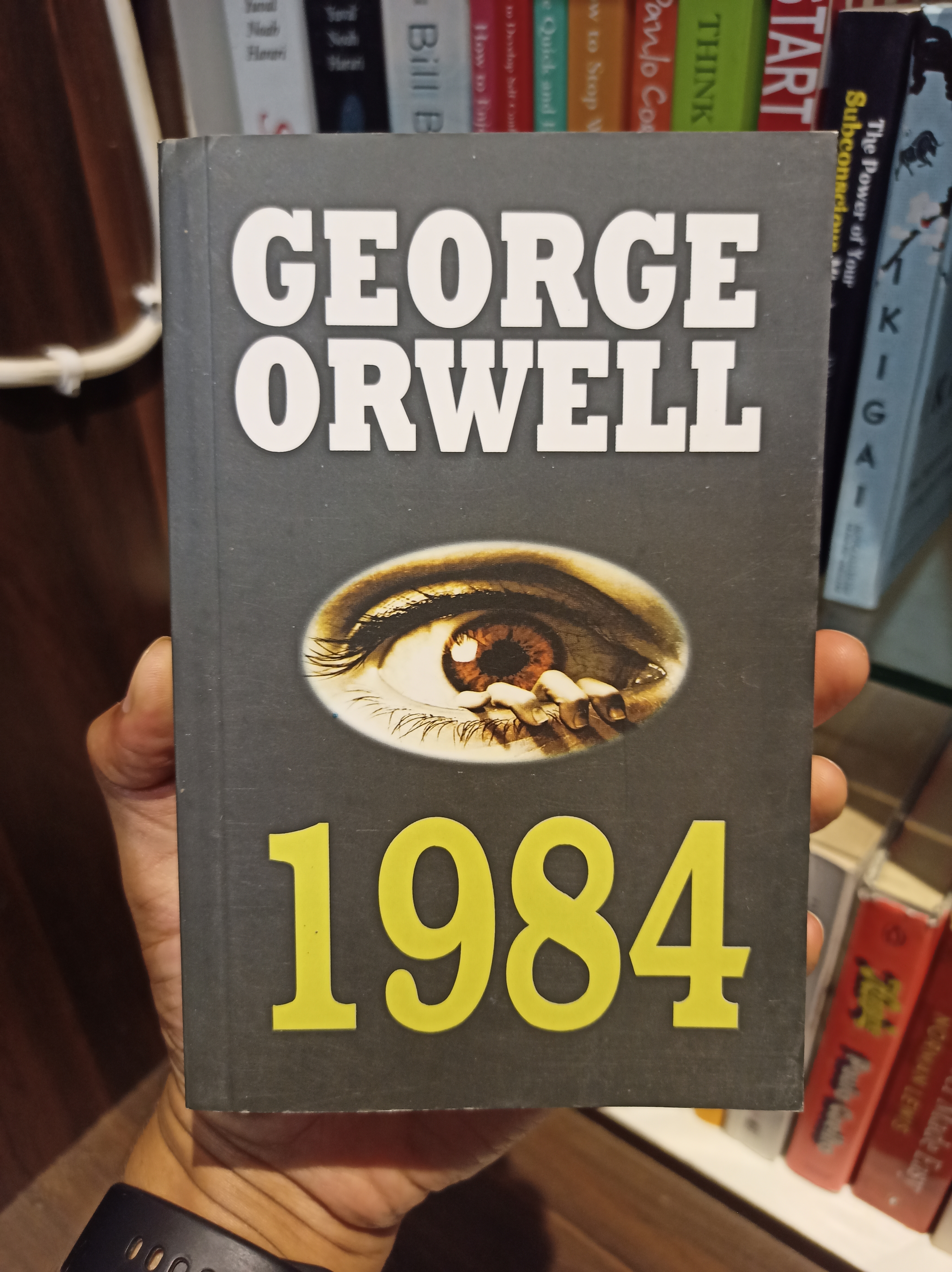
Navigating the dystopian depths of “1984”
Welcome, dear readers, as promised, I’m sharing my top 3 classic gems with you over three captivating blog posts. So, fasten your seatbelts, and let’s embark on this thrilling journey of literary exploration, starting with doublethink and deception in: “1984” by George Orwell.
Picture this: a much younger Bookish Gent, lost in the labyrinth of this dystopian masterpiece. As I turned the pages, I found myself transported to the unsettling world of Oceania, where Big Brother’s ever-watchful eye loomed large, and the concept of individual freedom was but a distant dream.
I remember reading “1984” late into the night, huddled beneath a cozy blanket in the dim light of a vintage desk lamp. The eerie atmosphere matched the haunting narrative, and I couldn’t help but feel a sense of unease. Orwell’s prose had a way of seeping into my soul, urging me to question the very fabric of reality and the insidious nature of power.
Doublethink & Deception
In the world of Oceania, the ruling party exercises its control over the minds of its citizens through manipulation and propaganda. Using doublethink – the art of believing in two conflicting concepts without cognitive dissonance. Oh, and did I mention the thought police? Think of them as the party crashers who ruin the fun at your favourite literary soirée. A world where truth is elusive, and individuality is crushed under the weight of conformity. The line between truth and propaganda blurs, and the quest for individual freedom becomes a harrowing battle.
Winston Smith, our rebellious protagonist, yearns for truth amidst a sea of deception. As I followed Winston’s journey, his struggle to maintain individuality in the face of oppressive conformity resonated deeply within me. His quest for love and resistance against the all-encompassing Party machinery was a testament to the indomitable human spirit.
This is where our renegade bumps into Julia, a fellow rebel, and Winston’s forbidden love. Her defiance, her determination to find moments of joy amidst the bleakness, tugs at the heartstrings. The words she whispered to Winston, “We are the dead,” became an emblem of their clandestine struggle against a ruthless regime.

“1984” had an undeniable impact on me, and it can do the same for you. It forces you to contemplate the fragility of truth and the importance of preserving freedom of thought and expression. As I closed the book, I couldn’t help but wonder how its powerful themes echoed in the world around me – from the watchful gaze of surveillance to the artful manipulation of information. Orwell’s prophetic vision had me entranced, dancing the cosmic tango of introspection, as reality and fiction entwined in an intricate embrace.
Why read “1984”?
Gents, listen up! Reading “1984” is like a mental boot camp for your brains. Think of it as a literary workout that flexes those critical thinking muscles and keeps your cognitive agility in top-notch shape. Not to mention, it’s the ultimate guidebook on spotting doublethink – you’ll become an expert at detecting those contradictions faster than a speeding bullet! So, if you want to impress your friends with some mind-bending insights, unlock the secrets of Orwell’s dystopian masterpiece. It’s like having a secret weapon for intellectual banter at parties. Who needs small talk when you can discuss the fragility of truth and the cosmic tango of reality? Let’s face it, being a literary ninja is way cooler than just being an ordinary reader. So grab a copy here.
More like “1984”
- Fahrenheit 451” by Ray Bradbury: Journey into a world where books are banned, and firemen are tasked with burning them. This thought-provoking tale delves into the dangers of censorship and the importance of preserving knowledge.
- “Dark Matter” by Blake Crouch: While not a dystopia, this gripping science fiction novel explores alternate realities and the choices that shape our lives, delving into the blurred lines of reality and identity.
- “The Circle” by Dave Eggers: This contemporary novel examines the potential dangers of a tech-driven world and the loss of privacy in the digital age.
Been there, done that?
This is a community, share your thoughts on “1984”.
The idea of reality control, or “doublethink,” is a central theme in the book. How does the Party manipulate language, history, and information to maintain its control over the populace?
How does this relate to the concept of truth and the manipulation of truth in our own world? The Party’s slogan is “War is Peace, Freedom is Slavery, Ignorance is Strength.” What is the significance of this slogan, and how does it reflect the Party’s manipulation of language and concepts?
Can you draw parallels to similar manipulations of language in our own society?
“1984” is often cited as a warning against totalitarianism and the dangers of government control. How does the novel’s vision of a dystopian future resonate with contemporary issues and the potential threats to individual freedoms and privacy that we face today?
Leave your comments below📚💫